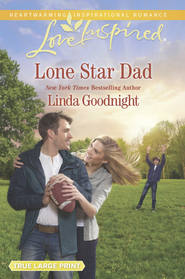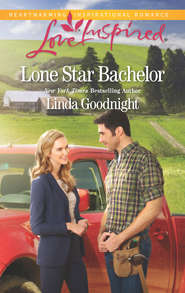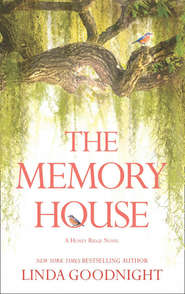По всем вопросам обращайтесь на: info@litportal.ru
(©) 2003-2025.
✖
Unforgettable
Автор
Год написания книги
2018
Настройки чтения
Размер шрифта
Высота строк
Поля
“I want to run some further tests and consult with a neurologist.”
Prickles rose on the back of Carrie’s neck. “A neurologist? For what?”
Frannie answered for him. “Alzheimer’s, honey. The doctor thinks I’m losing my mind.”
* * *
Three weeks and many clinic visits later Fran sat across the desk from a neurologist who looked as if he’d flavored his coffee with pickle juice.
Carrie sat next to her, face stony and pale as the doctor confirmed the diagnosis. She’d known he would. That’s why she hadn’t wanted Carrie to come, but here she was, shaking like a leaf and looking the way she had when she was ten and ate too many green blackberries. Sick and hollow-eyed.
Fran understood the feeling. She was feeling a little sick herself. Jittery, too. No one wanted to be told that she would eventually disappear into a fog and break her family’s hearts.
“Isn’t there a medicine for it?” Carrie’s fingers trembled as she pushed her hair behind one ear.
Of all the things Fran had dreaded about today, this was the worst, to know her family would suffer because of her, and there was so little she could do about it.
Dr. Pickle Juice made a few more comments, then excused himself and left. A nurse came in, smiling more than the doctor, and handed them both a card about the Alzheimer’s Association. Frannie gave her a Jesus Loves You smiley sticker, and slid the card into her I Love NY purse. She’d never been to New York, but she’d always wanted to go. Maybe she would do that now. Someday was no longer an option.
“I don’t know what to do,” Carrie said when they were alone.
Fran placed a hand on her daughter’s arm. “We do what we’ve always done. We put it in the Lord’s hands and trust Him.”
The look Carrie gave her said she didn’t buy that answer in the least.
* * *
The ugly diagnosis haunted Carrie day and night. She could think of little else. Mother’s casual attitude didn’t help, either. Carrie wondered if denial, nonchalance and a foolish determination to put a happy face on a devastating diagnosis were symptoms of the disease. An hour after they’d arrived home from the clinic Mother changed into a rhinestone cowboy hat and red boots and went to her weekly guitar lesson. How foolish was that?
Robby, Carrie’s brother, was no help. Though concerned, he lived in Michigan and couldn’t grasp the seriousness of the situation. He’d said Mom sounded fine to him when they’d spoken on the phone. She knew how he felt. Denial was easier than reality.
“Until now, I never even realized anything was wrong,” Carrie told Dan one night as they sat on the patio staring up at an April moon. The evening air was chilly so they huddled under a fleece throw. Instead of the usual romantic snuggle, the air hung heavy with Carrie’s worry. “She’s always been outrageous and silly. Who would notice if she forgot an appointment or repeated herself? I forgot to call the insurance company about that wind damage to the roof and there’s nothing wrong with me.”
She said the last as if it worried her, because it did.
“Everyone forgets things,” Dan agreed, his thick, calloused fingertips making lazy circles on her shoulder.
“The neurologist says she may not get bad for a long time. No one can really predict. In fact, he can’t even be one hundred percent sure she has Alzheimer’s disease. Mother keeps saying she’s fine, that she and God will beat this thing.”
“Your mom is a strong woman.”
Carrie made a little noise in the back of her throat. “You can say that again. No one ties down the irrepressible Frannie.”
No person could, but this ugly disease with a German name eventually would. Bile rose in the back of Carrie’s throat, as bitter as the feeling in her soul.
“I don’t understand God,” she muttered, gazing up at the marbled-cheese moon. She had grown up without a father, and now she was going to lose her mother in the most heinous manner. Where was God in any of that? “Old lady Smith across the street is a mean, bitter old hag who never contributes to anything and wouldn’t call 9-1-1 if you died in her living room. But she’s still sharp as a tack and making everyone miserable while a vibrant, giving woman like Mother is struck down in her prime. If there was any justice, Ms. Smith would get Alzheimer’s. Not Mother.”
Dan squeezed the side of her neck but said nothing. That was Dan. Sometimes she longed for him to hash things out with her, to argue or debate or just talk something into the ground, but he never did. No matter how big the problem, Dan kept his thoughts to himself. It was a wonder the man didn’t explode. She would have.
Especially now when she was angry and confused and depressed.
Mother’s life had never been easy. Only in the last few years had everything settled into a pleasant rhythm. Mother loved her job as church secretary. Her house, though only a small frame structure with two bedrooms, was paid for and she’d been saving money for another missions adventure, as she called them. This time to help with a Bible camp for orphans.
Yes, after all Mother had done for the Lord, Alzheimer’s disease was a lousy method of repayment.
CHAPTER THREE (#u3d8d397e-6646-508a-bda6-db8aa7faa0b4)
Ken Markovich’s farm smelled like fresh-mowed grass with just the hint of the red, muddy river which gave Riverbend its name. Bottomland, people around here called the area. Rich, fertile farmland that would grow about anything. Fran loved coming out here where the birds pecked at plowed ground, and it wasn’t unusual to see a red fox chasing mice across the fields. Once she’d lain on her belly in the grass and watched a mama coyote teach her young to catch grasshoppers. It was the cutest thing.
“You’re quiet today.” Ken walked beside her toward the horse corral. He didn’t have a lot of animals, but he loved buckskin horses and kept several to ride for enjoyment and in parades. He looked so handsome decked out in cowboy hat and chaps riding astride a big, muscled gelding. “Anything wrong?”
The feeling of dread that had hovered over her all day settled low in her belly.
“I’ve been praying about something.” As hard as this was, she had to tell him. He deserved to know. She’d barely slept last night, praying and thinking and trying to decide the best way to break the news.
“Need any help?” The question was one of the many things she loved about Ken. They shared a common dependence on the Lord. For both of them, God was a friend as well as their Lord and Savior. Talking to Him was as natural as breathing.
“I need to tell you something. Something important.”
She followed him through the gate, thinking what a good man he was. He wasn’t hard to look at, either. His hair had gone white a long time ago along with his mustache, but his eyebrows and lashes were a gorgeous contrast in black.
“I’m listening.”
A mare plodded forward to greet them. Ken crooked an arm over her back and leaned on the shiny coat. Frannie rubbed the soft muzzle, felt the moist breath from the mare’s velvety nostrils against her skin.
Every sensation seemed more precious now that she knew she’d someday forget the simple pleasures.
“I’ve been seeing a doctor.”
Ken straightened, his arm dropping to his side. She could see the wheels turning, could almost smell his anxiety. “Is it—”
She shook her head. “Not cancer.”
A visible quiver of relief ran through him. “Thank the Lord Jesus.”
“Yes. I’m grateful for that, too, but the news is not very good.” She swallowed, nervous again, her stomach pitching like sea waves. She’d meant to say something funny and make him laugh first, but nothing came to mind. “Remember those times I’ve had difficulty talking? And that night at clogging when I got upset because I’d lost my purse but it was right where I’d left it?”
“I remember.” His curious concern was edged with wariness. “What’s going on, Fran?”
“I have early-onset Alzheimer’s, the forgetting disease.”
Shock registered on his face. Shock and fear.
A tractor rumbled and rattled in a distant field, stirring up a cloud of dust. A horsefly buzzed the mare. She stomped her foot and the fly buzzed off. Frannie wanted to do the same. Stomp her foot and shoo away the truth.
“Is there anything I can do?”
“Not a thing except be my friend.” She’d settle for friendship now, though they’d been more for a long time.











